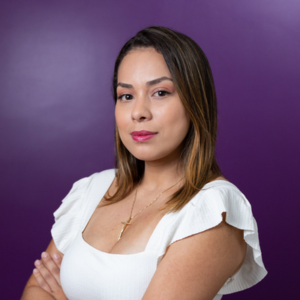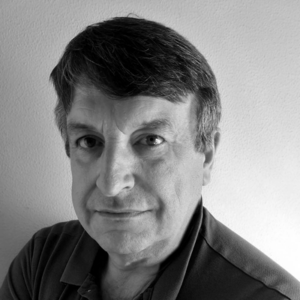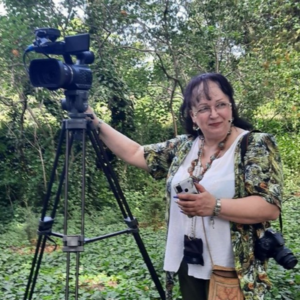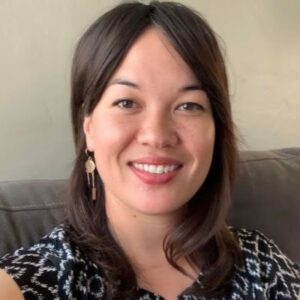
For our 20th anniversary, the Knight Center for Journalism in the Americas reached out to its community of journalists around the globe to find out how our programs have impacted their careers and lives.
Here are snapshots of some of their stories.
Director, Agência Tatu (Maceió, Brazil)
 Graziela França and colleague Lucas Thaynan continued their education after their university in Brazil went on strike by taking a Knight Center course on data journalism.
Graziela França and colleague Lucas Thaynan continued their education after their university in Brazil went on strike by taking a Knight Center course on data journalism.
Following the course, França and Thaynan produced articles and other content based on data journalism, eventually creating a news agency – all while still in school.
Agência Tatu is located in Maceió, the capital of Alagoas, and specializes in covering news “always using data of public interest,” as França explains. The work is especially important when taking into account that the media outlet is located in northeastern Brazil, an area of the country with the second highest percentage of news deserts – municipalities without independent journalism outlets.
“Without the Knight Center, we would not have known about data journalism and Agência Tatu would not have been created. The Knight Center was fundamental for the creation of our local data journalism agency, which is now a reference both in our state and throughout Brazil."
In five years of existence, Agência Tatu has eight people on the team, has produced hundreds of articles and has also developed technology products. They’ve won nine awards and have been in four acceleration programs.
“The [Knight Center] provides a very relevant service, especially to those who are often unable to pay for courses and training or are far from large urban centers, where many opportunities are present,” França said.
Founder and CEO, NOS, WHY NOT? (Spain)

In 2013, photojournalist Felipe Alonso created “Nos, Why not? (NwnPhoto), an agency that trains young people with intellectual disabilities and ADHD.
“In a few words, our mission is to achieve the socio-laboral inclusion of people with disabilities through images,” Alonso said. “And our vision is to create a community of photographers with disabilities, which facilitates the introduction of people with disabilities in the ‘magical’ world of photography, in which they can train and practice photography, and enjoy a structure that allows them to earn income with the sale of their photographic work.”
Photographers that are part of the agency have done exhibitions and presentations, photograph events and produce reports. They also become part of a community.
Alonso said that thanks to the Knight Center’s course with instructor Robert Hernández on virtual reality and 360º video, the agency began to work on 360º photography and virtual tours.
“Soon, we will add 3D product photography to these virtual tours, making our offers more professional,” he said.
With the more recent massive open online course (MOOC) “Introduction to photogrammetry in journalism: Capturing your world in 3D” with instructor Ben Kreimer, the agency will start training photographers in photogrammetry. It will help them present a more complete service to clients in museums, hotels and real estate, Alonso said.
“Although we make advances everyday, achieving success, there are still many prejudices against people with disabilities, especially intellectual disabilities, and people with mental illnesses,” Alonso said.
Alonso said he believes they can eliminate this prejudice through creativity, quality and technology.
The agency is currently training eight photographers and has contacts in Madrid, Norway, the U.S., Argentina, Peru and India.
Journalist and professor (Odessa, Ukraine)

Olena Orlova, a journalist and teacher at Odessa I.I. Mechnikov National University in Ukraine, has taken nearly 10 courses with the Knight Center.
For her, the benefit has been two-fold.
“I began to competently shoot and edit on a smartphone, track traces of people on social networks, identify fake videos and photos in order to fight disinformation, including on social networks, and conduct journalistic investigations,” she said of her professional development.
Additionally, thanks in part to the courses, she introduced a mobile journalism course at her university, included data journalism skills into lesson plans, and supervised students working on COVID-19 projects.
“I really like the volume and quality of classes that you offer, and the high professionalism of your lecturers,” Orlova said. “I hope that in the future I will have the opportunity to gain knowledge from the Knight Center for Journalism in the Americas!”
Producer, San Diego News Fix, San Diego Union-Tribune
 Journalist Kristy Totten had an idea for a podcast on food and culture in Las Vegas, but didn’t know where to start. So, she and fellow journalist Sonja Cho Swanson signed up for a Knight Center course on podcasting in 2018.
Journalist Kristy Totten had an idea for a podcast on food and culture in Las Vegas, but didn’t know where to start. So, she and fellow journalist Sonja Cho Swanson signed up for a Knight Center course on podcasting in 2018.
“We took the course to understand how to do it from the ground up,” Totten said. “It definitely helped us to refine our idea, as well.”
After the course, the pair created and hosted the podcast Spicy Eyes and reported what Totten calls “off-Strip stories about the diverse and wonderful city” of Las Vegas. Episodes looked at the arrival of Thai food to the city, eating Halal in Vegas and where the scraps from Sin City’s famous buffets end up.
Totten is now producer and host of the San Diego News Fix at the San Diego Union-Tribune and Cho Swanson is lead producer at CityCast Las Vegas.
“The [Knight Center] course gave us a solid foundation to start our own project and build our portfolios, and today we both make podcasts professionally for nationally-known news organizations,” Totten said. “Thank you, Knight Center, for ongoing professional training that has truly broadened my skills and improved my career.”
Professor and researcher, Panamerican University (Mexico)
 Professors at the School of Communication at Panamerican University in Mexico City recently gathered for the first colloquium on the challenges and opportunities of journalism education today.
Professors at the School of Communication at Panamerican University in Mexico City recently gathered for the first colloquium on the challenges and opportunities of journalism education today.
“The Knight Center influenced the development of our colloquium by calling attention to, through its online publications (articles and e-books) and especially the free courses and webinars it offers, both the challenges and opportunities facing journalism today,” said Dr. José Luis López Aguirre, professor and researcher at the university.
According to him, the Knight Center’s online activities provided the chance to gain new knowledge and skills to improve programs of study at the university.
“We are aware of the new skills that information professionals need in a world overwhelmed by information overload and now disinformation,” the professor said. “In this post-digital era, we have taken on the challenge of returning to the essence of journalism and rediscovering its role in society, taking advantage of all the possibilities offered by technology and socio-digital platforms to generate quality, attractive content that responds to the specific needs of information of our users.”
While this first colloquium was limited to the university where he teaches, López Aguirre said he plans to do it again with colleagues from other higher education institutions.